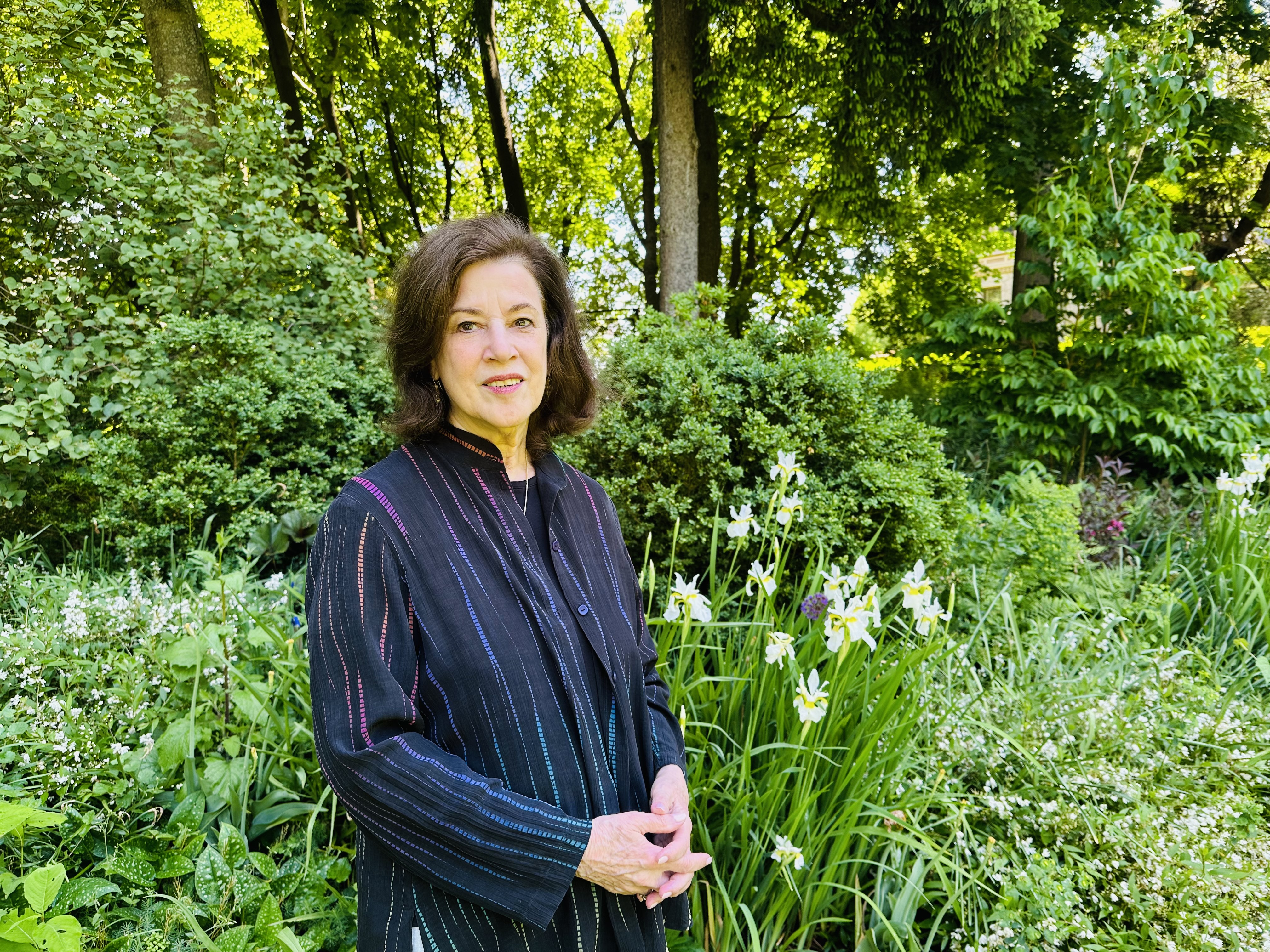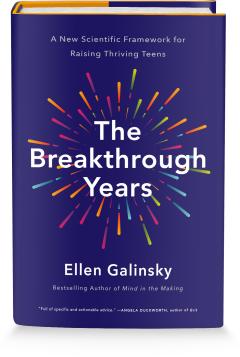Ellen Galinsky ’64 Leads a Journey of Discovery through the Teenage Brain

When child development researcher and author Ellen Galinsky ’64 first became a parent, she was told something many new parents hear: “Just wait until he’s a teenager!” But are teens always so scary, difficult, and incomprehensible? Or can the teen years be filled with tremendous possibility for both parents and kids? In her new book, The Breakthrough Years: A New Scientific Framework for Raising Thriving Teens (called a “superb contribution to science and society” by Richard M. Lerner, founding editor of the Journal of Research on Adolescence), Galinsky offers evidence of the latter. The project spanned almost a decade during which Galinsky conducted three original studies, surveyed 1,666 adolescents and their parents twice, and interviewed dozens of neuroscientists in depth.
You just spent nine years researching teen behavior and brain development. What made you want to take on this project?
I’d spent decades studying what helps young children learn and thrive. I knew I also needed to understand what helps adolescents learn and thrive—to better understand this transition between childhood and adulthood. Also, I’m fascinated by people not truly understanding each other. If we can’t understand others, we can’t work with them, even help them. I wanted to write a book that shared the new science and helped us raise and teach teens.
Figuring out adolescence is a huge topic—where did you start?
I practice a form of research called civic science: I go out and ask the people who would be the subjects of a study what they want to know, what they think is important. Beforehand, I read more than 200 researchers on adolescent development but then went out to ask kids, “What do you want to know about your development?” “What do you want to tell adults about people your age?” I ask open-ended questions because I want to really listen.
And what kinds of things did they want to know?
Young people asked, “Why don’t adults understand us?” “Why don’t they like teenagers?” Then I knew—that’s what I had to understand.
Why do parents and teens clash so much?

There are a number of reasons. One is that we have a protective instinct. We know more than they do, and so we worry that they’re going to be hurt. We’re afraid for them, and we want to protect them. A second reason is a cognitive bias called “the curse of knowledge.” Once we know something, it’s really difficult to unknow it. So, if we know from our greater experience that A might lead to B, we want to forewarn our kids. I’ll give you one example: Let’s say that your child is rejected, someone breaks up with them. So, we might just say, “Yeah, I felt that way but you’ll get over it.” And kids may feel that that’s diminishing the pain that they feel. [Instead,] we might say, “You’re supposed to feel emotional about that. You’re biologically wired to react really strongly to this.”
Why are adolescents wired that way?
Because they have to figure out what’s safe and what’s not safe if their parents aren’t right there to protect them. In all species, in all cultures, we’re wired to react very strongly to experience at this age as we move away from home. It helps us figure out where we belong and where we’re safe. This strong emotional reaction is built into us, and helps us figure out the way the world works.
Are you saying that some of the teen behavior that aggravates parents the most is actually normal and even necessary?
Yes. “Developmentally necessary” are the words that I use.
How can parents be better in the moment? Let’s take the example you just used about a teen becoming extremely emotional about a breakup that maybe the parent feels is for the best.
The adult can say, “You feel really badly right now and that’s normal. When you’ve had time to calm down, let’s talk.” Then when you talk, you can say, “What do you really value in people? And how can you find people who value you?” Lots of people grow up and get in the wrong kinds of relationships. It might be different if they’d had a chance to step back and think of what is valuable in a relationship: What kind of people do I want to be with? Where do I feel supported? Where do I feel like I can be my best self? Of course, we need to make sure that our kids are not in harm’s way, but if we also ask those questions, we’d be promoting a skill. Then you can say, “Wow, that was a challenge and you took it on.”
Today’s adolescents have been through so much: the pandemic, school shootings, the negative pressures of social media. Do you think today’s teens have it more difficult than past generations?
Yes and no. It’s always hard to figure out who you are and move out into the world. That said, the CDC data show that more kids are reporting anxiety and depression—those figures have gone from 21% to 42% in 10 years. That’s a big jump that started pre-pandemic. I think technology is different, parents’ work pressure has intensified as have school pressures. There’s a lot going on. One thing that helps kids, though, is to become not the helped but the helpers. Some of the young people I interviewed who had gone through huge mental health challenges became a helper for other kids going through challenges as they recovered. I think we need to give more young people opportunities to be helpers.
It’s been a minute since you graduated from Vassar; is there anything from your Vassar years that you carry with you today?
I fell in love with child development, child studies, when it was a major at Vassar. The people at Vassar—[former professors] Joe Stone, Joe Church, Henrietta Smith—were shaping the research in the field, and they had so much to learn and do that they didn’t treat us like, “here’s the students and we’re going to tell you what you should know.” They treated us like people who could help them figure things out. So they gave us things that were challenging them and asked us to research them. From Vassar, I got not only my love of child development but a way of doing it: asking questions, seeking answers. I also got from Vassar, “go to the source.” Do people still say that?
They sure do!
So, I don’t read about studies; I read studies. I don’t read about children; I ask children. I go to the source. Another thing that I got from Vassar is—it became quickly clear to me that teachers really valued students’ making unusual connections—creative thinking plus critical thinking. I’ve always tried to break the mold, not see things the way other people see them. But it’s not easy. There are just a lot of times where you’re in the fog, confused. You have no idea what you think. But you learn to trust yourself enough to think, I’ll figure it out. And then you do!